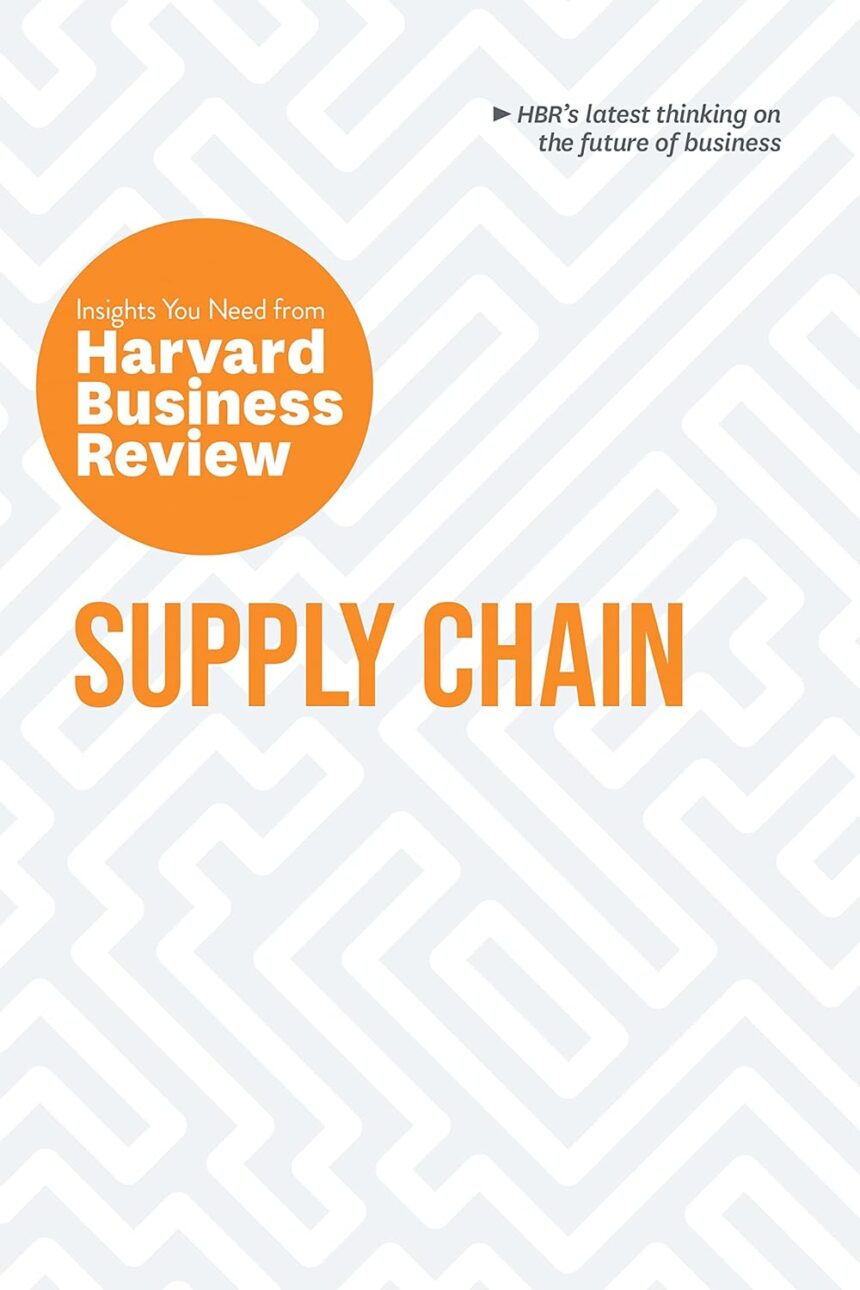
Review Article: Insights on Supply Chain Management from Harvard Business Review
Introduction
Supply Chain Management (SCM) has evolved from a mere logistical function to a strategic pillar that influences the overall performance and competitive advantage of organizations. Harvard Business Review (HBR) has published numerous articles and case studies that provide valuable insights into the complexities and innovations within supply chains. This review article synthesizes key findings and themes from HBR’s extensive body of work on SCM, shedding light on the trends, challenges, and best practices that shape modern supply chains.
The Strategic Importance of Supply Chains
One of the primary insights from HBR is the recognition that supply chains are not just operational units, but strategic assets. Companies like Apple and Toyota demonstrate how effective supply chain management can lead to significant differentiation in the marketplace. By integrating supply chains into their core strategies, these companies can optimize production processes, enhance customer satisfaction, and drive innovation. HBR highlights that businesses that treat their supply chains as a strategic priority are better positioned to respond to market changes and customer demands.
The Impact of Technology
Technology is a recurring theme in HBR’s supply chain discussions. The advent of digital tools, data analytics, and automation is transforming SCM. Predictive analytics, for instance, allows companies to forecast demand more accurately, while the adoption of Internet of Things (IoT) devices provides real-time visibility into supply chain operations. These technological advancements enable firms to make data-driven decisions, enhance efficiency, and reduce costs. HBR articles emphasize that organizations must embrace these technologies to remain competitive and agile in an ever-evolving market landscape.
Sustainability and Ethical Considerations
Another significant area of focus in HBR’s exploration of supply chains is sustainability. As consumer awareness and regulatory pressures regarding environmental issues increase, companies are reevaluating their supply chain practices. HBR discusses how sustainable supply chains can not only minimize environmental impact but also create financial benefits through improved efficiency and brand loyalty. The implementation of circular economy principles, ethical sourcing, and transparency are highlighted as key strategies for building sustainable supply chains.
Resilience in Supply Chains
The COVID-19 pandemic underscored the need for resilient supply chains, a topic that HBR has extensively covered. Disruptions have challenged traditional supply chain models, forcing businesses to rethink and redesign their strategies. HBR emphasizes the importance of diversification, local sourcing, and risk management in enhancing supply chain resilience. Firms that adopt a proactive approach to identifying potential risks and developing contingency plans are better equipped to withstand shocks and maintain operational continuity.
Collaboration and Partnership
Collaborative supply chain models are increasingly gaining traction as highlighted by HBR. The complexity of global supply chains necessitates stronger partnerships between companies, suppliers, and customers. HBR contends that collaboration fosters innovation, sharing of best practices, and joint problem-solving, leading to more resilient and efficient supply chains. Cross-functional teams and open communication channels are pivotal in building these collaborative ecosystems, ensuring that all parties are aligned towards common goals.
Conclusion
Harvard Business Review offers a wealth of insights for professionals navigating the multifaceted landscape of supply chain management. From emphasizing the strategic role of supply chains to exploring the impact of technology, sustainability, resilience, and collaboration, HBR provides a comprehensive framework for understanding and optimizing supply chain operations. As businesses continue to face unprecedented challenges and opportunities, these insights serve as a guiding light for developing effective supply chain strategies that drive success in today’s dynamic market environment.
By synthesizing the knowledge gleaned from HBR, organizations can not only improve their supply chain functionality but also enhance their overall business performance and profitability. The future of supply chains, as highlighted by HBR, lies in adaptability, innovation, and strategic foresight.
Price: ₹599 - ₹437.00
(as of Mar 16, 2025 19:34:26 UTC – Details)
Disruptions in the global supply chain bring companies to a standstill.
Supply and demand shocks. Labor shortages. International trade wars. As businesses and customers struggle to get the products they need from across the globe, manufacturers must reassess how they operate, from rethinking offshore options to exploring new technologies.
Supply Chain: The Insights You Need from Harvard Business Review will help you better understand the dynamics at play worldwide and identify the risks in your supply chain network so you can ensure resilience without sacrificing competitive advantage.
Business is changing. Will you adapt or be left behind?
Get up to speed and deepen your understanding of the topics that are shaping your company’s future with the Insights You Need from Harvard Business Review series. Featuring HBR’s smartest thinking on fast-moving issues—blockchain, cybersecurity, AI, and more—each book provides the foundational introduction and practical case studies your organization needs to compete today and collects the best research, interviews, and analysis to get it ready for tomorrow.
You can’t afford to ignore how these issues will transform the landscape of business and society. The Insights You Need series will help you grasp these critical ideas—and prepare you and your company for the future.
Publisher : Harvard Business School Pr (31 October 2023)
Language : English
Paperback : 176 pages
ISBN-10 : 1647825962
ISBN-13 : 978-1647825966
Item Weight : 272 g
Dimensions : 13.97 x 1.91 x 20.96 cm
Country of Origin : India










